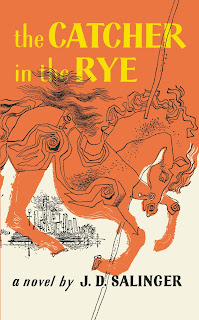A couple weeks ago, there was a shooting at a protest in Minneapolis, and it already has its own Wikipedia page. Welcome to life in the age of the Internet.
The woman shot was Renée Nicole Macklin Good, a US citizen who had spent the prior day "legally observing" the activities of Immigration and Customs Enforcement (ICE) agents in Minneapolis. Then on January 7, something happened between her and ICE agent Jonathan Ross. Other people were there too, including Good's wife and other ICE agents. There appear to be multiple videos circulating around the Internet. Anyway, when everything was over, it developed that Ross had shot Good dead. Naturally the Internet has been full of discussion ever since.
I don't want to write about the shooting itself. Lots of people have done that. A simple Google search should find you plenty to read on the subject, and mostly I haven't read it. So I don't have any new or interesting take on what happened.
What interests me is the commentary I've seen. As soon as videos were available, I saw Twitter light up with comments urging, Watch this video, which proves conclusively that Renée Good was completely innocent, and that her killer was evil and unprovoked! And then a minute later I'd see more comments shouting, Watch this video, which proves conclusively that Renée Good threatened the officer's life, and that he acted in pure self-defense!
I didn't click either link, but I assume they were advertising the same video. And this is what interests me. Naively, you would think that the availability of video evidence would cut down on the level of bias in the discussion. But empirically, it doesn't seem to. How can this be?
My own speculation is that people see what they expect to see. Some people approach this news with a reflexive distrust of law enforcement. When they see video evidence (which ought to be objective) they interpret it in a way that indicts law enforcement personnel. Other people approach the same news with a reflexive trust of law enforcement, and a distrust of protestors. When they see video evidence, they interpret it in a way that exonerates law enforcement personnel and indicts the protestors instead. This means that while police body-camera footage may be helpful in a court of law (and I am given to understand that it is often very helpful there), it is more or less useless in the court of public opinion. People on both sides of any contentious issue will interpret any available footage until it supports their sides.
I suppose I should clarify that, up till now, I have not studied any of the available video footage related to this event. Why not?
That's simple. I know where my biases are, and I know that the video footage will support my biases. Or rather, I will reinterpret what I see until it supports my biases. So I already know (more or less) what I am going to see. Why bother watching it?
Wait a minute! I don't have biases! It's just you lot that have biases!
Well, that would be nice of course. But I know better.
OK, what are these biases that you say I have?
Oh, that's easy. Whenever something goes wrong in the world, I hate ascribing it to simple human evil. That approach always seems too facile and too easy ... and therefore it feels stupid. So I try to understand the different sides in their own terms, which does not allow me to write any of them off as merely evil. On the other hand, it is very easy for me to believe that, in a situation that is tense or dangerous or fraught, anyone might react with actions that are impulsive or reckless. I know I have.* So I assume that the confrontation between Renée Good and Jonathan Ross was tense or dangerous or fraught [I think this part goes without saying.] and therefore that one or both of them acted in ways that were impulsive or reckless. And in the end Renée was shot dead.
Because I know that this is my bias, I am quite certain that this is what I would see if I watched the video. So I'm in no great hurry to watch the video. I already know that people do stupid things in dangerous situations, and I don't really need more evidence to prove the same point all over again, one more time.
For what it is worth, my bias drives a whole set of preventive actions, as well. I have a dear friend who visited me a few months ago, at a time when a No Kings protest was planned for the city where I live. I knew she wanted to attend, but she suggested that we not go because "I really don't think it's your kind of thing."
Of course she's right. It's not my kind of thing. But this is why.
I assume—exactly as I describe above—that people who insert themselves into situations which are tense or dangerous or fraught are likely to do stupid things and get themselves killed.
I don't want to get myself killed.
And I have no confidence that I—me personally, myself—can avoid the temptation to do something stupid.
Therefore I would rather avoid dangerous situations in the first place, and that means (among other things) that I would rather not go to protests.
Of course it is easier to avoid them because I also assume that nobody cares what I think about any concrete political issue. I vote regularly because it's the right thing to do, but I don't live in a state so small that my vote makes the slightest difference to the outcome.
Maybe this is a depressing way to look at things.
On the other hand, I'm still alive. For good or for ill.
__________
* Cue the Monty Python routine, "The Mouse Problem."














